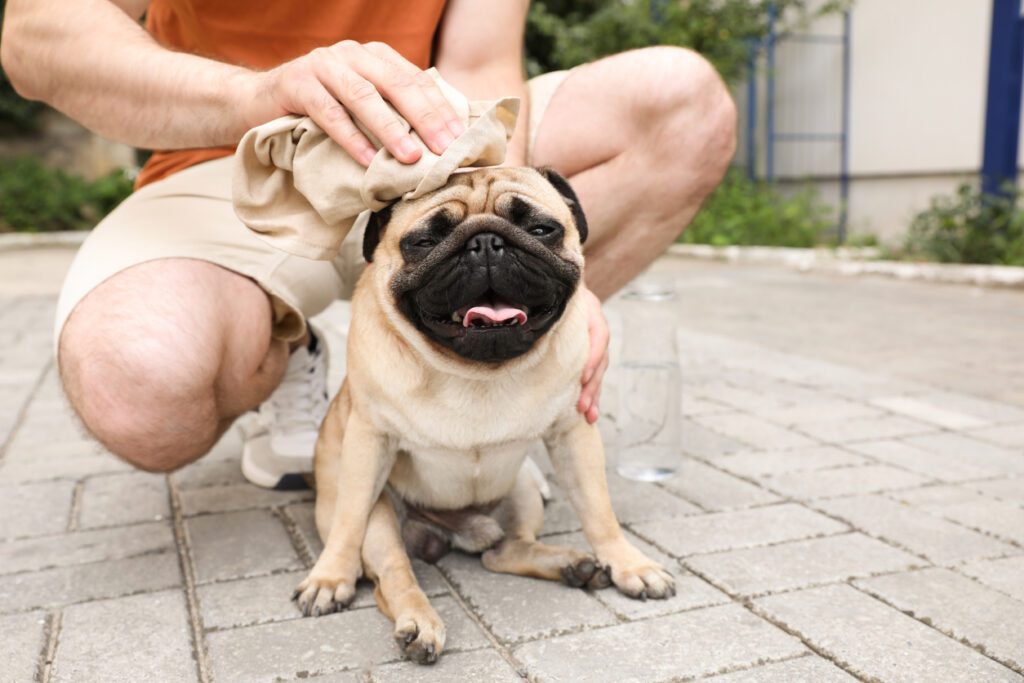Dehydration in Dogs: Symptoms, Causes and Treatment

Recognizing the Signs of Dehydration in Your Dog
As a responsible pet owner, it’s crucial to be aware of the signs of dehydration in your furry friend. Dehydration can be a serious issue for dogs, and early detection is key to prompt treatment. Keep an eye out for these common symptoms:
- Dry Gums and Mucous Membranes: Healthy dogs have moist gums and mucous membranes. If they appear dry or sticky, it’s a sign of dehydration.
- Sunken Eyes: Dehydrated dogs often have sunken and dull-looking eyes. The eyes should be bright and clear.
- Lethargy: A lack of energy and enthusiasm can indicate dehydration. If your dog is unusually tired or less active than usual, it’s a cause for concern.
- Loss of Skin Elasticity: Gently pinch your dog’s skin at the back of the neck or between the shoulder blades. In well-hydrated dogs, the skin will quickly return to its normal position. Dehydrated dogs will have slower skin recoil.
Causes of Dehydration in Dogs
Understanding the underlying causes of dehydration in dogs is essential for prevention. Here are some common reasons why dogs become dehydrated:
- Inadequate Water Intake: Sometimes, dogs simply don’t drink enough water, especially in hot weather or if they’re not feeling well.
- Excessive Heat: High temperatures can lead to excessive panting, which can cause dogs to lose fluids rapidly.
- Illness: Various illnesses, including gastrointestinal problems and kidney disease, can lead to dehydration.
- Vomiting and Diarrhea: Persistent vomiting and diarrhea can quickly deplete a dog’s body of fluids.
- Fever: Elevated body temperature from an infection or illness can contribute to dehydration.
Treating Dehydration in Dogs
If you suspect your dog is dehydrated, it’s vital to take immediate action. While these steps can help, they are not a substitute for professional veterinary care:
- Offer Water: Encourage your dog to drink small amounts of water frequently. Avoid forcing them to drink large quantities at once.
- Electrolyte Solution: If your dog refuses to drink water, you can offer an electrolyte solution specifically designed for dogs. These are available at pet stores.
- Monitor and Seek Veterinary Care: Keep a close eye on your dog’s condition. If the symptoms persist or worsen, don’t hesitate to call Warrick Veterinary Clinic at (812) 897-4855 for professional evaluation and treatment.
Preventing Dehydration in Your Dog
Prevention is the best approach when it comes to dehydration. Here’s how you can help keep your dog well-hydrated:
- Provide Fresh Water: Always have a bowl of clean, fresh water available for your dog. Change it regularly, especially on hot days.
- Regular Exercise: Exercise is essential, but be mindful of the weather. Avoid strenuous activities during extreme heat, and provide water breaks.
- Proper Diet: Feed your dog a balanced diet to maintain overall health, as some illnesses can contribute to dehydration.
- Regular Vet Visits: Schedule routine check-ups at Warrick Veterinary Clinic, by calling (812) 897-4855 or requesting an appointment online. Regular exams can help identify and address potential health issues before they become severe.
Dehydration is a serious concern for dogs, but with vigilance and prompt action, you can help ensure your furry companion stays happy and hydrated. If you suspect dehydration or have any concerns about your dog’s health, please don’t hesitate to contact Warrick Veterinary Clinic for expert guidance and care. Your dog’s well-being is our priority.
